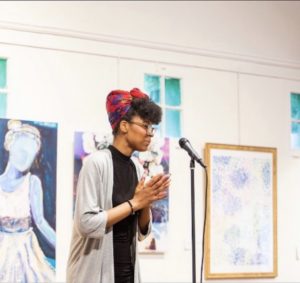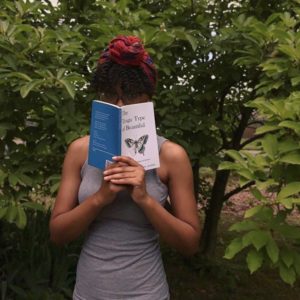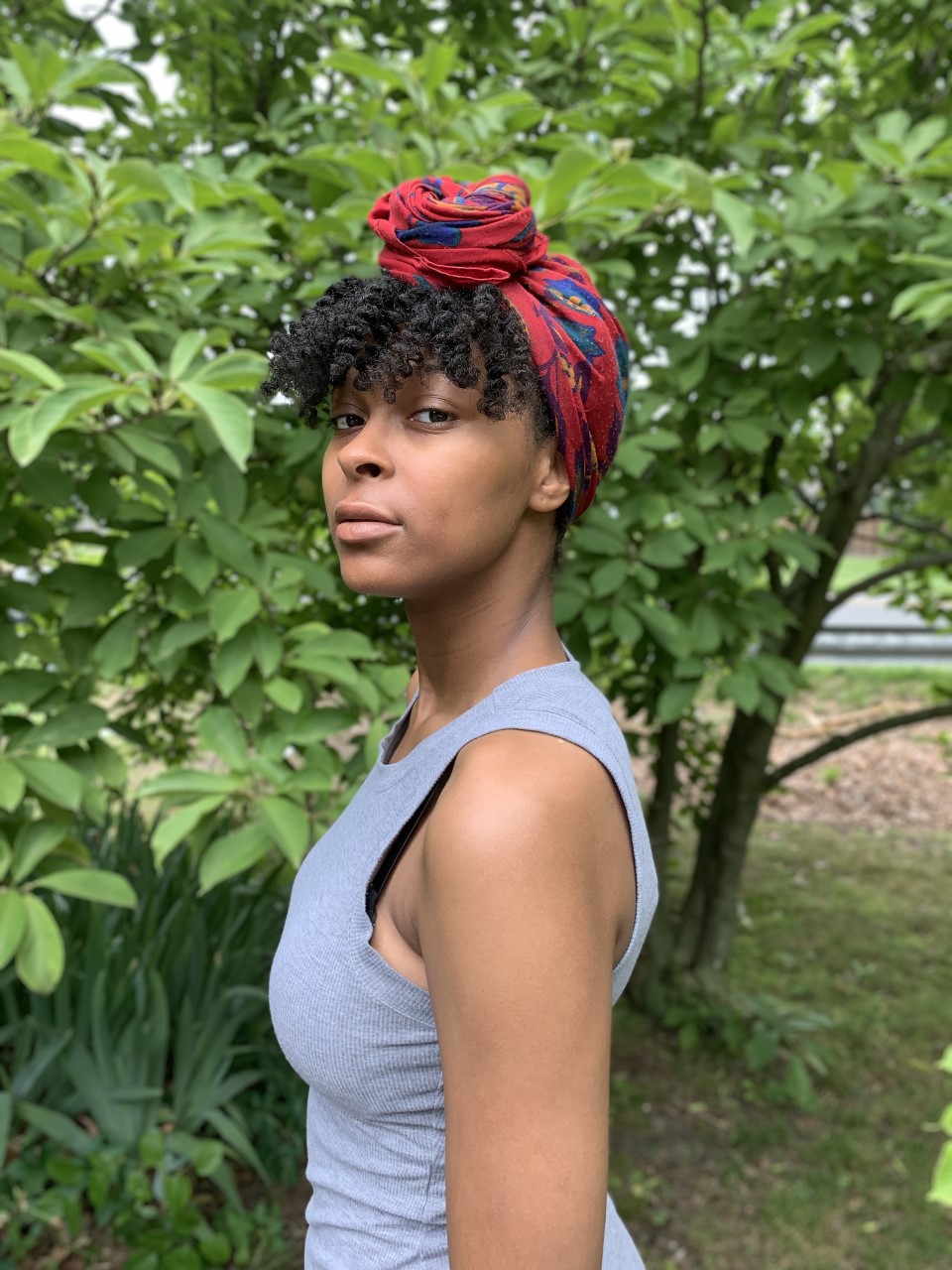Poetry as Activism: Cheyenne Tyler Jacobs Talks Gender-Based Violence, the She Will Speak Anthology, and the Importance of Telling Your Story
“There is no one in the world who can tell your story, but there are people in the world who need to hear it.”
Cheyenne Tyler Jacobs is on a mission to remind you of four important things: you are needed, you are loved, you have purpose, and you are important.

Founder and curator of the She Will Speak Series, a platform to empower women through education, awareness, and arts in order to cultivate healing and change, Jacobs is also the author of her own collection of poetry, The Tragic Type of Beautiful. Her popular Instagram account @shewillspeak inspired the name of her empowering series and continues to be a platform to inspire change while showcasing her beautiful poetry and works of activism.
I was so fortunate to speak with Cheyenne about her poetry journey, writing to heal from trauma, and what we can be doing to stop the crisis of gender-based violence towards women.
Poetry as a Way of Life
Kailey Brennan: Can you speak about your writing journey? Were you always drawn to poetry?
Cheyenne Tyler Jacobs: My writing journey is one of cycles. I was bullied in middle school and high school and sought a way to express those emotions. I mean, I’ve always had a thing for words, the way they sound, how you can feel someone’s voice in their work. Which is why I love Spoken Word— it’s my form of expression and how I best communicate.
When I first started writing I didn’t know it was poetry; I was just spreading bare my emotions. It wasn’t until later in high school that others who read my stuff began to tell me, “Hey, that’s really good poetry.”
KB: Why do you think poetry is important?
CTJ: I feel poetry is a direct reflection of life; in a sense, it is alive because we who read and consume it are alive. I’ll get out of a piece one theme or emotion one day, and the same poem a week later would bring me new revelations; new cascading waves of emotion. It’s formless and can be presented in ink, voice, or even movement. It’s, maybe, a way of life.
She Will Speak Series
 KB: Your journey to the She Will Speak series began when you used the name on social media. What was your inspiration behind it? Can you tell us how you began this movement?
KB: Your journey to the She Will Speak series began when you used the name on social media. What was your inspiration behind it? Can you tell us how you began this movement?
CTJ: Being @SheWillSpeak on Instagram was highly about me having a space to share my work, and in doing so I sought healing and the relief of letting go of my hurt and pain from trauma. It gave me both a sense of strength and freedom, as well as comfort in being vulnerable.
As I grew, and people began to follow me, others began sharing their stories with me. They said things like I inspired them to share or that they felt healing from my pieces. I wanted even more than to create a space for women to feel safe enough to share their stories and their truths. To educate, inspire and build a community for each other. That’s how the @SheWillSpeakSeries started.
KB: The She Will Speak Series anthology is an amazing collection of diverse women’s voices, curated by you, addressing the gender-based violence women experience on a daily basis. What was it like to have so many poets contribute their voices to your cause?
CTJ: It would be difficult to put into words the experience of reading through the submissions and every layer of truth and vulnerability in these works. I had to stop several times to cry, which inspired the pauses and breaks throughout the book.
I really felt grateful through it all, because these warriors who survived gave me pieces of themselves and trusted me with them. I then felt a responsibility to push for change, so we created a pledge in the book to stop gender-based violence in our day to day life.
We also teamed up End Rape On Campus (EROC) and it’s hosted on their site, as well as in their library in D.C. with portions of each book sale going to them.
KB: Do you think we as a society are having enough conversations about sexual assault and violence against women? Are conversations enough?
CTJ: I think we need to have more conversations on gender-based violence, including more on all those who don’t succumb to gender norms and anyone who identifies as womxn. We have a Justice issue, but we also have a Social issue.
Our conversations need to be more inclusive. We need more education on resources for survivors, we need to create more support for those who wish to come forward and report. We need conversation and an action plan.
I have a workshop in the works called “Beyond the Talking Points” which focuses on small community development, connecting those communities, and taking action to empower women/womxn, in response to GBV.
The Tragic Type of Beautiful

KB: Your own poetry collection The Tragic Type of Beautiful explores many vulnerable, traumatic times in your life. Does writing poetry help you heal? What do you hope readers take away from reading your words?
CTJ: Healing, to me, is about change and awareness. Poetry gave me the ability to accomplish that. I wrote the Tragic Type of Beautiful because my life at that point was filled with sadness, and I needed to come out the other side stronger.
Life can be painful, it can be rough and dark, but it can also be glorious and beautiful. I think it was this duality that I wanted to convey. I really wanted readers to take away that tragic settings don’t have to be tragic stories. After publishing this collection, my motto has been: you are Loved, you are Needed, you have Purpose, and you are Important.

KB: What would you say to writers and poets today who are afraid or apprehensive to share their words or their voices?
CTJ: I want you to know, whoever you are, that somebody in this world needs your book. They need to hear your truth, your poem, and your story. Life is about perspective, and your reality is something no one can ever have, but it is something we can understand, relate to, and learn from. There is no one in the world who can tell your story, but there are people in the world who need to hear it.




